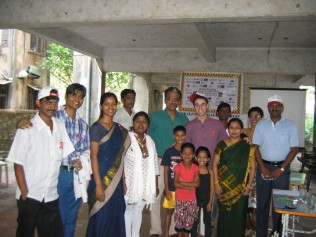Performing short-term volunteer work abroad is “potentially exploitative” of vulnerable populations, according to a recent study of “voluntourism” in African orphanages. Authored by researchers from South Africa’s Human Sciences Research Council and Queen Mary, University of London, the report found that foreign volunteers who came, bonded and left harmed the emotional and social development of children.
“Volunteer vacations” also risked taking low-skilled work from locals and burdening host organizations with overhead costs, the report stated.
“Well-meaning young people should be discouraged from taking part in such tourist expeditions and be given guidelines on how to manage relationships to minimize negative outcomes,” the researchers, Linda Richter and Amy Norman, wrote.
The study made headlines in November 2010 in the Telegraph and Guardian, which published articles warning would-be do-gooders about the potential pitfalls of volunteering abroad.
“These trips raise profound questions about misplaced idealism and misconceived attitudes,” Ian Birrell wrote in the Guardian, noting that Voluntary Service Overseas, a UK-based organization that sends volunteers abroad, has even called some volunteer efforts a new form of colonialism.
Aaron Dorfman, education director at the American Jewish World Service (AJWS), knows that service trips can raise thorny issues. The organization sends 500 volunteers each year to Africa, Asia, Central America and South America for stints of one week to a year.
A spring-break trip that delivers $150 worth of labor to a needy community costs the organization $1,800 and potentially costs locals jobs, Dorfman conceded in an article for Zeek. Realizing why the investment is worth it calls for a wider perspective, he argued. For example: “What if the desired outcome isn’t only a new fence or community center but also the volunteers’ deeper, more personal understanding of the challenges of the developing world that leads to a lifetime of activism in pursuit of justice?”

David Friedkin, an AJWS volunteer in Mumbai, India, feels his four months abroad have already left an indelible mark. “This has definitely sparked an interest in doing development or social support work, be it at an international or domestic level,” he said. As part of a year-long program, Friedkin does everything from direct service to communications work for a local nonprofit that runs support centers for drug users.
Friedkin knows that temporary volunteers can sometimes be detrimental. “Will [they] leave a vacuum in their wake once they leave? Or will they work with others so that they may learn what the volunteer has to offer and therefore expand their capabilities?” are key questions, he said.
Friedkin has partnered with local staff on projects to ensure that they outlive his tenure. AJWS’s extensive training regimen and long-term relationships with organizations also help volunteers be effective, he said.
Lydia Gilbert, who works for the Clinton Global Initiative in New York, is convinced that she made an impact when she spent a year after college volunteering in Dominican schools with The DREAM Project, a U.S.-based nonprofit organization. By the time she left, she had helped start an after-school program for at-risk youth, a community garden and a Parent-Teacher Association.
“If you can improve one child’s life, I think that’s an impact,” Gilbert said. Far from taking local jobs, she helped youth build skills to enter the job market. Most foreign volunteers help over-stretched staff or support causes that create jobs, argued Peter Slowe, founder of Projects Abroad, one of the UK’s largest international volunteer organizations, in a Telegraph article responding to the Richter-Norman report. Volunteers also spend millions of dollars each year, mainly on local staff and services, Slowe wrote.
Gilbert did find it difficult to leave the children she worked with after bonding with them, but she believes her presence also gave them a unique opportunity for cultural and knowledge exchange. “It’s opening up their world,” she said.
Her time abroad not only reinforced her commitment to a career in public service but also gave her a reality check. Ultimately, she said, the experience “really opened my eyes to sustainable tourism and how important it really is to come into a community and not disrupt the balance.”
Read Ethical Traveler's Reprint Policy.
